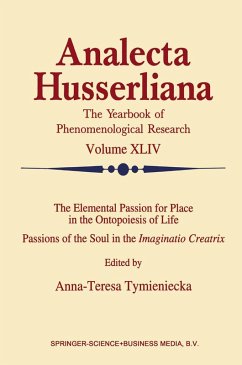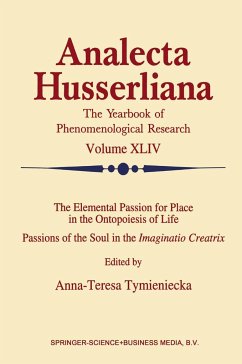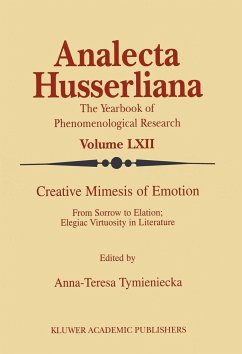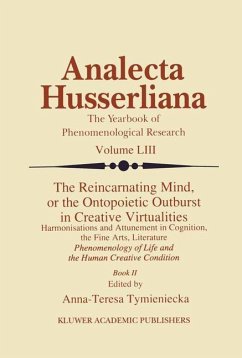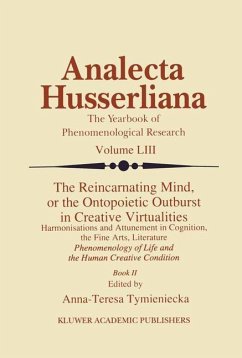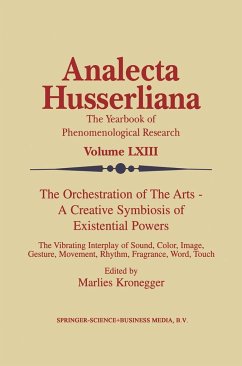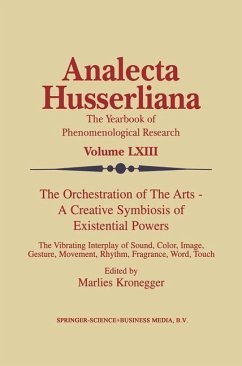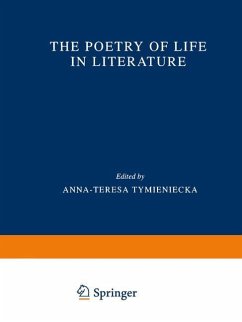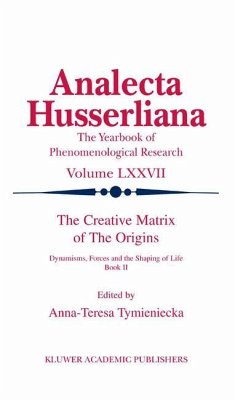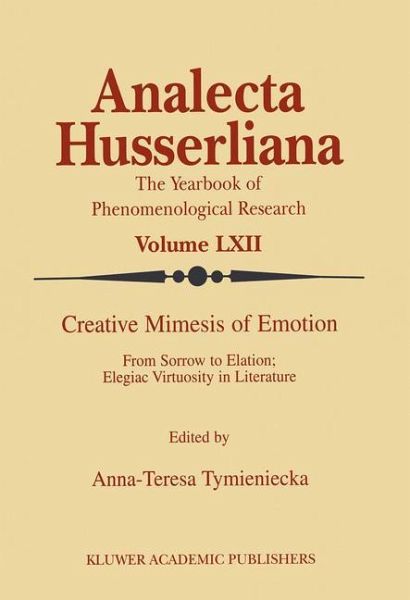
Life Creative Mimesis of Emotion
From Sorrow to Elation: Elegiac Virtuosity in Literature
Herausgegeben: Tymieniecka, Anna-Teresa

PAYBACK Punkte
19 °P sammeln!
Are emotions, feelings, sentiments not the stuff of literature? That is where they project their `inner logic' of aesthetic transmutation; there, beyond the instrument of language that they command. This collection explores how the lyrical virtualities of life-experience and the elegiac style in literature share a common core, lifting the human significance of life from abysmal vitality to esoteric heights, from abysmal grief to a serene reconciliation with destiny. The `elegiac sequence' in the play of emotions, feelings, sentiments brings together life and literary creativity in its transfor...
Are emotions, feelings, sentiments not the stuff of literature? That is where they project their `inner logic' of aesthetic transmutation; there, beyond the instrument of language that they command. This collection explores how the lyrical virtualities of life-experience and the elegiac style in literature share a common core, lifting the human significance of life from abysmal vitality to esoteric heights, from abysmal grief to a serene reconciliation with destiny.
The `elegiac sequence' in the play of emotions, feelings, sentiments brings together life and literary creativity in its transformatory power.
With papers by A. Giuculescu, John McGraw, R. Ellis, A. Carillo Canán, B. Watson, S. Bindeman, R.J. Wilson, L. Kimmel, B. Prochaska, T. Raczka, Chr. Eykman, J.S. Smith, G. Scheper, S. Feshbach, I. Vayl, H. Rudnick and others.
The `elegiac sequence' in the play of emotions, feelings, sentiments brings together life and literary creativity in its transformatory power.
With papers by A. Giuculescu, John McGraw, R. Ellis, A. Carillo Canán, B. Watson, S. Bindeman, R.J. Wilson, L. Kimmel, B. Prochaska, T. Raczka, Chr. Eykman, J.S. Smith, G. Scheper, S. Feshbach, I. Vayl, H. Rudnick and others.



